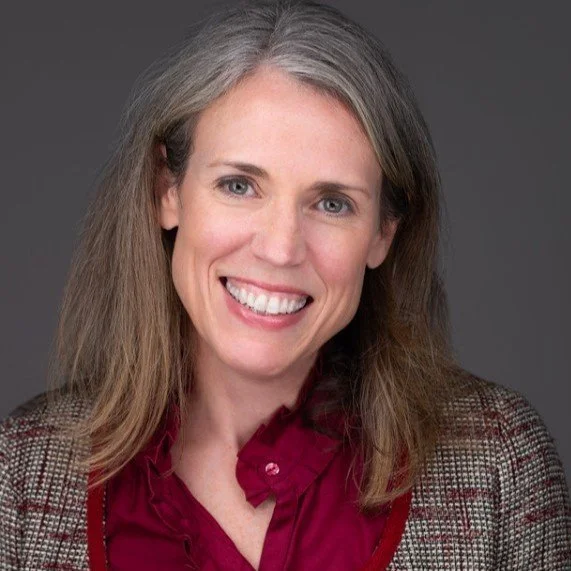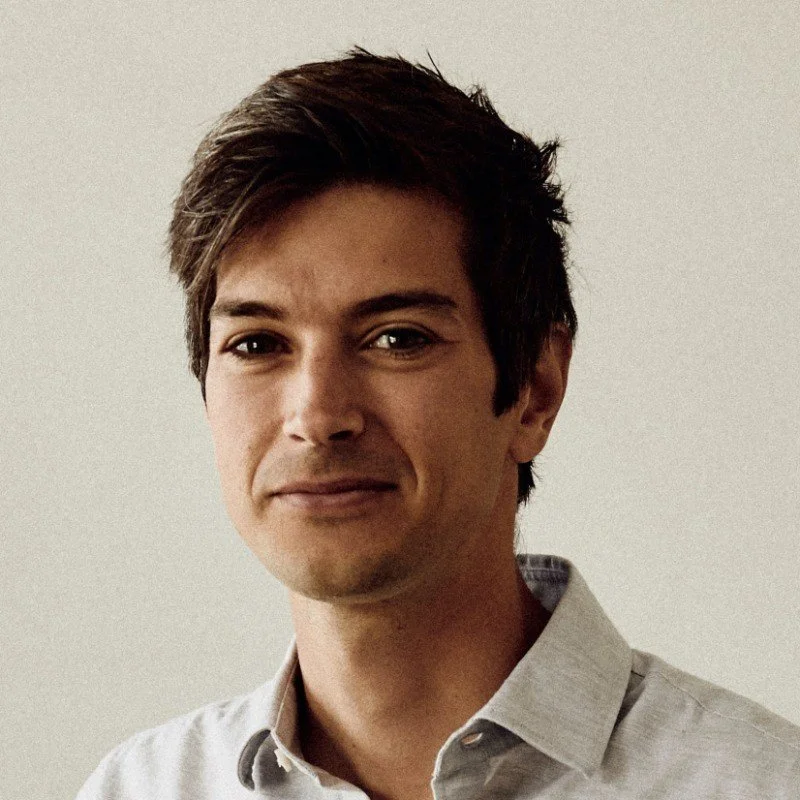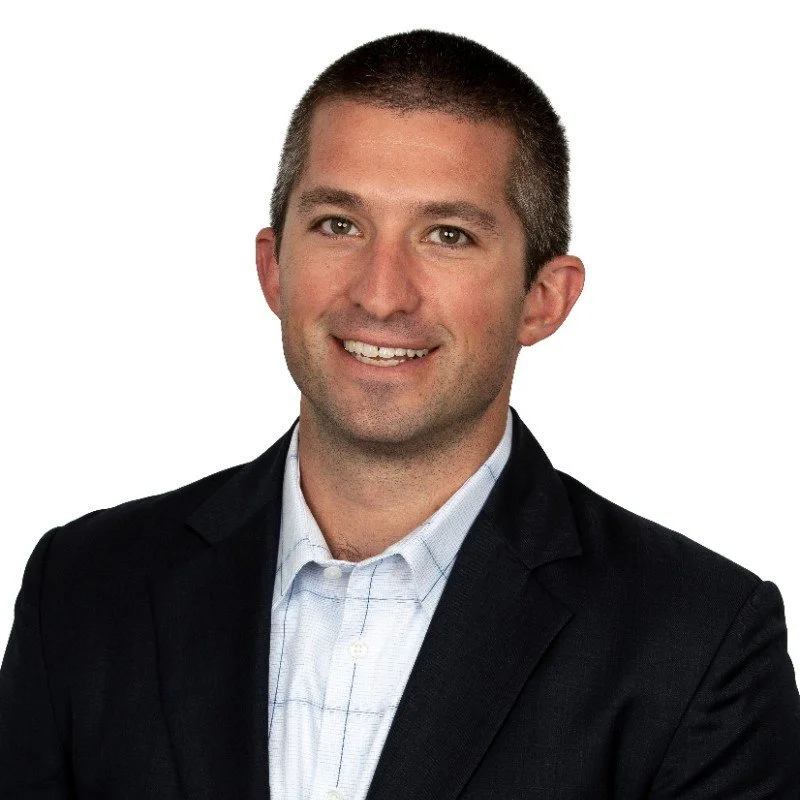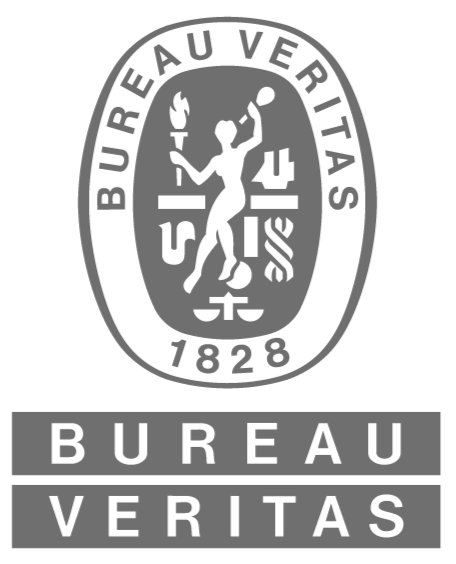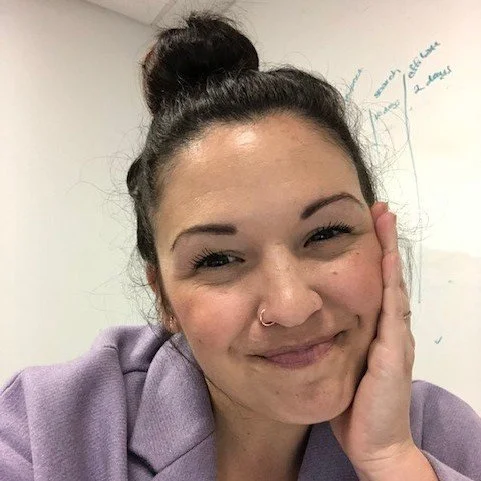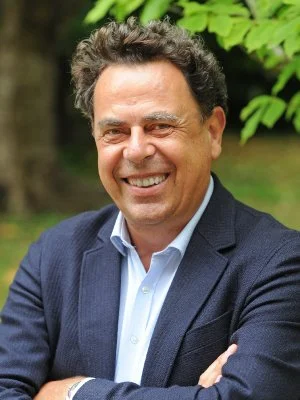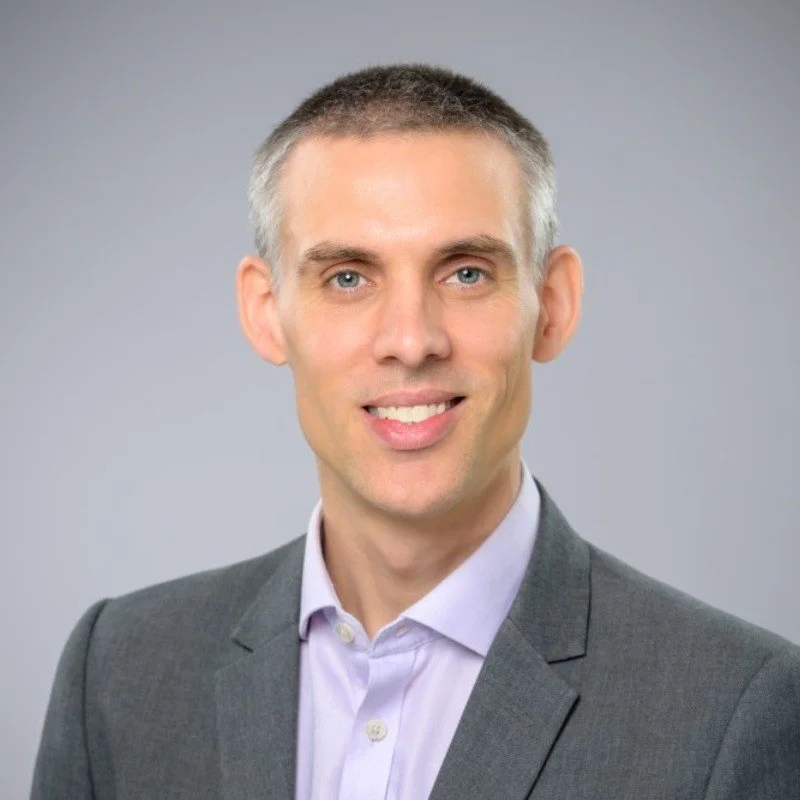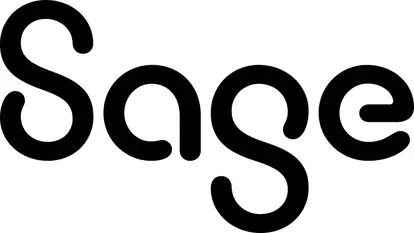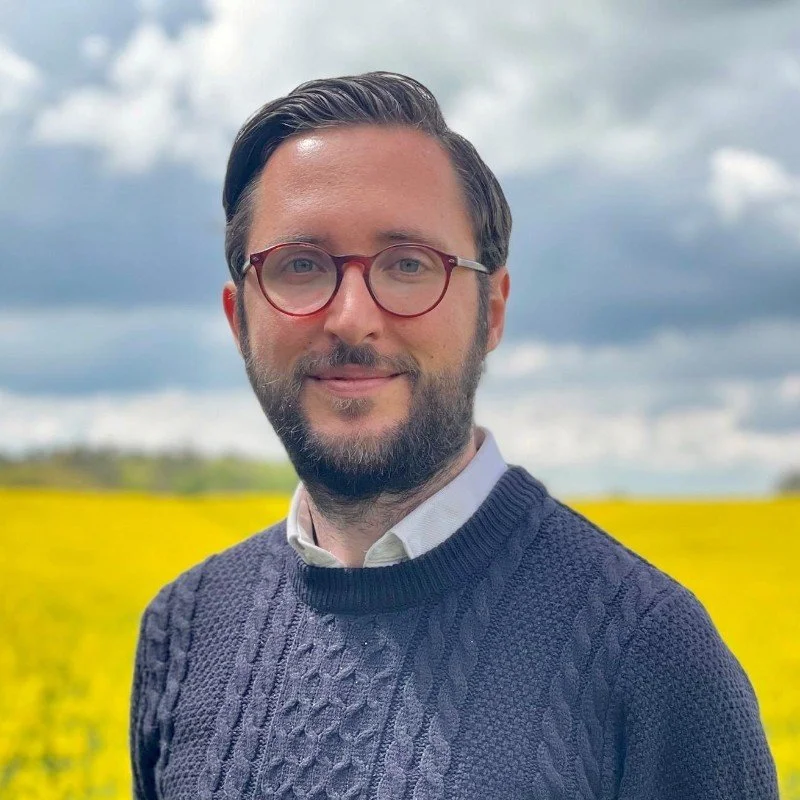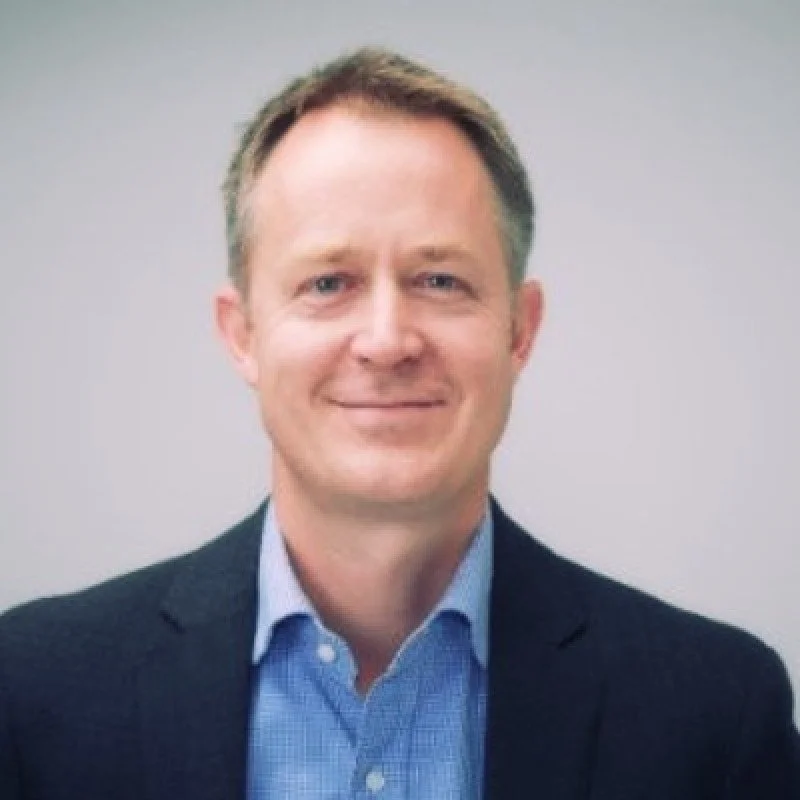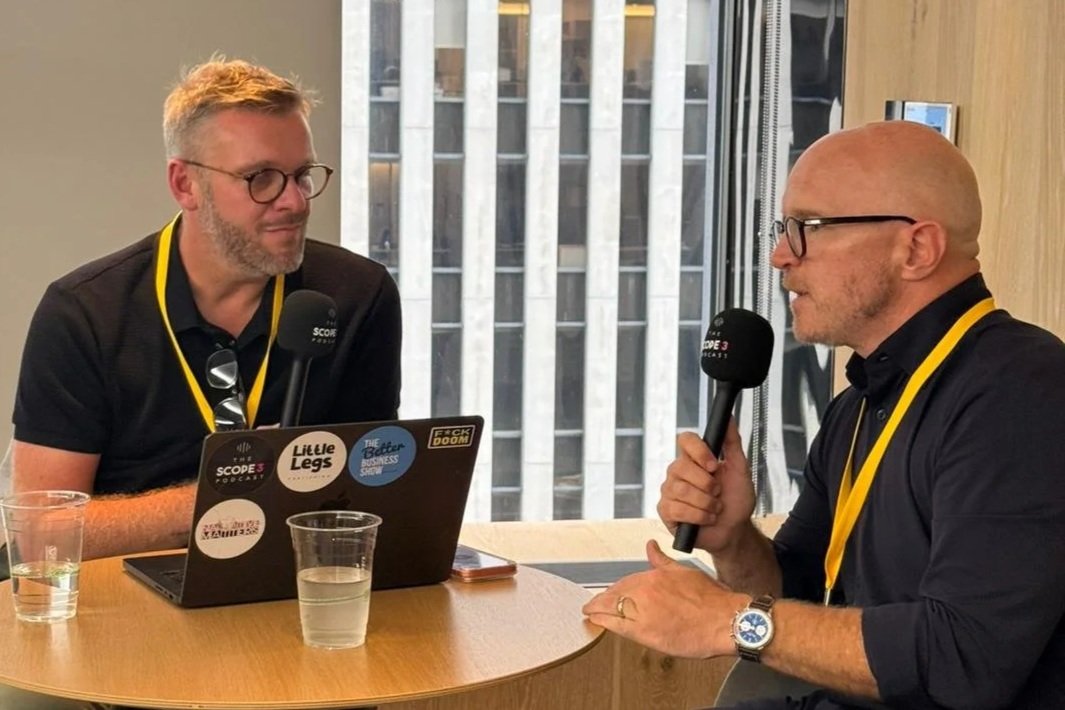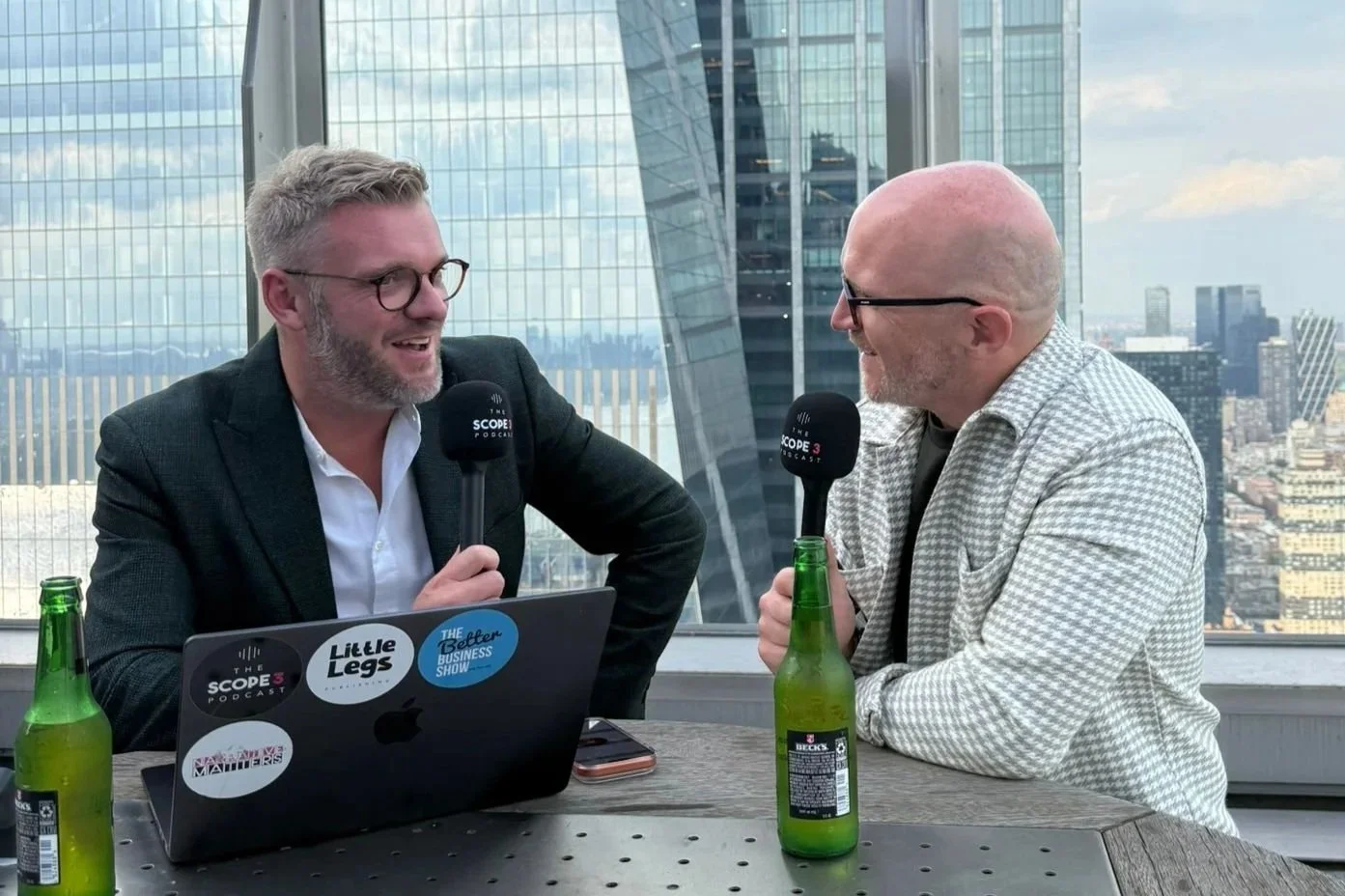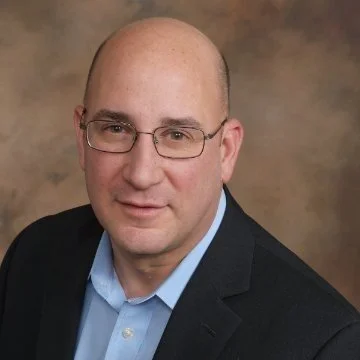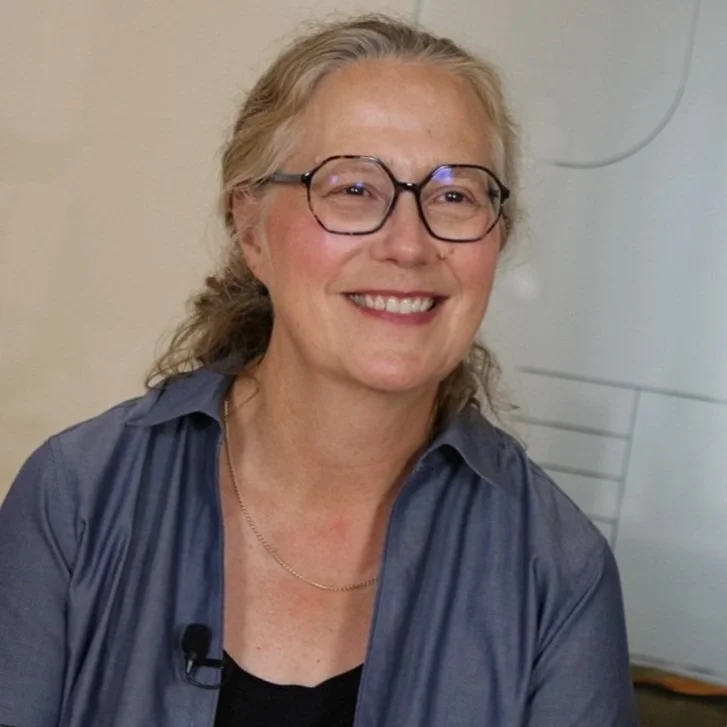The Scope 3 Podcast
The fortnightly podcast for business leaders looking to discover solutions, insights and best practice to address their Scope 3 emissions
Latest episode
Pharmaceutical Supply Chain Initiative and Electricity Maps
Episode 43
Supported by
In this episode of the Scope 3 Podcast, Ollie, Tom and Dexter take stock of where Scope 3 really is right now – what’s changed, what hasn’t, and why many organisations feel a growing pressure to move from counting emissions to actually cutting them.
Drawing on fresh insight from the Scope 3 Peer Group, the conversation explores how expectations are shifting: away from data foundations and broad supplier engagement, and towards targeted action, business cases, and measurable reductions embedded in procurement.
Together, they cover:
Why turning data into supplier action has overtaken data collection as the number one challenge
What’s changed in the last 12 months
The move from involving procurement to expecting procurement to own Scope 3 delivery
Why business cases now matter more than case studies
How credibility, proof of reductions and standards confusion are shaping decision-making
Why 2026 is shaping up to be the year of 'less counting, more cutting'
Then, Ollie is joined by Bridget Ferrari from Takeda and Devin Carsdale from Bristol Myers Squibb to go inside the work of the Pharmaceutical Supply Chain Initiative (PSCI).
They explore what large-scale collaboration actually looks like in practice, including:
How pharma companies are aligning around common asks without overwhelming suppliers
What it really takes to run collective decarbonisation programmes at scale
Why maturity-based supplier engagement matters
How commercial signals – contracts, incentives and procurement leadership – drive change
Finally, Tom is joined by the brilliant Olivier Corradi, founder of Electricity Maps, to explore how electricity data is reshaping climate action. They discuss:
Why annual averages hide the real impact of electricity emissions
How hourly, location-based data changes decisions and enables real reductions
The role electricity plays in both Scope 2 and Scope 3 – especially through cloud, data and digital services
How companies like Google are using electricity data to shift load, reduce emissions and cut costs
Why the energy transition is simpler than we often make it – at least up to 70–80% renewables
Bridget Ferrari
Takeda
Olivier Corradi
Electricity Maps
Devin Carsdale
Bristol Myers Squibb
Equinix and AITrack Solutions
Episode 42
Supported by
Ollie, Tom and Dexter are getting back into the swing of it for the new year – and setting the context for what’s shaping Scope 3 work right now.
First up, they discuss the continued momentum behind mandatory reporting around the world, with a particular focus on developments in Asia – and what that means for Scope 3 becoming unavoidable for more listed companies. They also touch on CBAM – or the Carbon Border Adjustment Mechanism – and the role policy mechanisms like carbon pricing can play in creating a clearer business case, even as political narratives shift in different directions.
Then, we have two great guest conversations that bring different, practical angles on execution.
First up is with Katy Newhouse, Director of Sustainability Technology at Equinix. Katy talks through her path from renewable energy and Amazon to the White House sustainability team, where she led work on the US government’s Scope 3 strategy, including the move to quantify supply chain emissions tied to federal spend and the importance of prioritising the biggest suppliers for impact.
Now at Equinix, she shares what it looks like to be on the ‘supplier side’ of Scope 3, how customers are using (and sometimes struggling to access) the data available to them, and why standardisation is essential if the industry is going to spend less time responding to surveys and more time decarbonising.
Then, Tom meets up with Yann Risz from AITrack Solutions by Bureau Veritas who explains how his work began with a simple frustration: corporate-level footprinting is scalable but blunt, while product-level LCAs are granular but historically slow and hard to scale. He unpacks what changes when you combine scalable product footprinting with ‘boots on the ground’ verification – and why, in his view, supplier engagement works best when it’s built around incentives, trust, and commercial relevance rather than pressure alone.
Listen right to the end when Ollie shares what the Scope 3 Peer Group is leaning into for 2026, including supplier engagement at scale, deeper procurement leadership involvement, and a stronger push toward practical decarbonisation support, alongside tools and governance work to make progress easier to navigate.
Katy Newhouse
Equinix
Yann Risz
AITrack Solutions by Bureau Veritas
Thermo Fisher Scientific and EcoVadis
Episode 41
Supported by
This episode has a bit of everything: hard-won progress, honest challenges, and something of a new format.
First up, Ollie sits down with the awesome team of Kristen Chambers and Matthew Yamatin from Thermo Fisher Scientific – one of those rare companies that isn’t just talking about supply-chain emissions, but quietly getting on with the work. They unpack how Thermo Fisher has built the internal systems, data foundations and supplier relationships needed to operate at scale, including how they’ve generated 80,000 product carbon footprints in a single year, how they balance customer demands with supplier realities, and why “good products from good suppliers” has become a practical decision-making framework rather than a slogan.
Then, Tom and Dexter are joined by Pierre François Thaler, co-founder of EcoVadis, for a wide-ranging conversation on how sustainability expectations are really landing in global supply chains. Pierre François reflects on building EcoVadis through financial crises, shifting regulations and rising ambition – and explains why embedding sustainability into procurement decisions is still the single biggest unlock for progress.
There's also a new Ask the Expert segment, where real, unfiltered questions from Scope 3 practitioners are put directly to Pierre-François. Topics include supplier engagement without overload, using sustainability scores in RFPs, rewarding suppliers for action (not just disclosure), and how AI is changing the way companies collect and use sustainability data.
Along the way, the team also share insights from hundreds of recent practitioner challenges, revealing what’s really keeping sustainability and procurement teams awake at night – and what’s finally starting to change.
Kristen Chambers
Thermo Fisher Scientific
Pierre-François Thaler
EcoVadis
Matthew Yamatin
Thermo Fisher Scientific
Smith+Nephew and Sage Earth
Episode 40
Supported by
Episode 40 marks a big moment for the show: Ollie and Tom have officially turned their double-act into a threesome. Dexter Galvin joins as a host, fresh from CDP and now juggling advisory roles at EcoVadis, CO2 AI and more. He’s no stranger to the show (or to firing off LinkedIn posts that get far more engagement than Ollie will ever forgive him for), and now he joins the show to share his genuine wisdom and musings.
This week, the boys catch up on:
Why companies are freaking out about re-baselining their targets – and why Dexter insists it's a sign of progress, not backsliding.
COP30 in Brazil, including the big deal behind the GHG Protocol x ISO alignment announcement, and what it means for reporting, suppliers, and everyone who doesn’t have time to untangle five different standards.
What actually happened at the Tools Clinic, where Ollie herded 200 sustainability professionals through nine 10-minute tool demos, all without Zoom exploding.
The launch of this year’s Scope 3 Peer Group Tools Review (link in show notes — yes, you should fill it in).
Then we dive into two brilliant conversations.
Katja Hantel, VP of ESG at Smith+Nephew tells the story that blew the roof off Ollie’s Scope 3 Peer Group Chicago meeting: how she reframed sustainability inside a med-tech company under real financial pressure. She explains why talking about efficiency, cost and resilience works better than leading with ‘green’ – and how this approach delivered a 60% Scope 3 reduction since 2021. Smith+Nephew also comes with hip implants, tendon repair tech, wound care – and now, a pretty compelling playbook for getting sustainability taken seriously in tough times.
Then, we hear from George Sandilands who leads Sage Earth. George shares how a chaotic brand-activation project (involving a pile of giant gift boxes and a perfume company changing its mind) accidentally pushed him into climate action. He unpacks how Sage Earth is now helping half a million SMEs measure carbon through their accounting data – automatically – and why SMEs hold the keys to unlocking meaningful supply-chain action.
He also talks honestly about life after acquisition (“from speedboat to cruise ship”) and the industry’s biggest blocker: lack of standardised data.
Stuff mentioned this time:
Tools Review – https://sustainabilitytoolfinder.com/tools-review
Dexter’s LinkedIn post on re-baselining – https://www.linkedin.com/feed/update/urn:li:activity:7399374243290828802/
The GHG Protocol + ISO announcement – https://ghgprotocol.org/blog/release-iso-and-ghg-protocol-announce-strategic-partnership-deliver-unified-global-standards
Sage Earth – https://sage.com
Smith+Nephew – https://www.smith-nephew.com
It’s a packed episode, with a new host, two killer interviews, some healthy moaning, one ball-pit-based birthday party, and a reminder that yes, Ollie really does talk about Liverpool every episode (he’s a bit obsessed).
Katja Hantel
Smith+Nephew
George Sandilands
Sage Earth
Siemens Gamesa and Map Collective
Episode 39
Supported by
If you ever need proof that Scope 3 work sits somewhere between detective work, diplomacy and DIY engineering, this episode is it.
We’ve got Max Schnippering, head of sustainability for Siemens Gamesa dropping truth bombs about steel, rare earths and three-storey-high nacelles, and then we’ve got Map Collective taking us into the future where AI agents do the reporting so humans don’t have to.
Segment 1: Max Schnippering, head of sustainability, Siemens Gamesa
Ollie sits down with Max for what is a deep, practical and very human conversation to explore his time with the wind business of Siemens Energy.
Max is one of those rare people who brings academic depth (yes, it’s Dr. Schnippering) and real-world grit. He’s been working across materials, mining, steel, procurement, supplier engagement and customer influence for years.
Key themes explored:
99% of Siemens Gamesa’s emissions sit in Scope 3.
Wind turbines are emissions-free once installed — the challenge is everything before installation: steel, copper, aluminium, rare earths, resins, and the mining and processing behind them.
Steel is the big one.
Roughly 90 percent of a turbine’s mass is steel and iron. Max walks through how they’re benchmarking suppliers, pushing steelmakers toward electric arc furnaces (EAFs), and setting a 0.7 tCO₂/t steel threshold for low-carbon material.
Supply chain sustainability now means going far beyond tier 1.
Siemens Gamesa is mapping the entire chain – mining, smelters, refiners – and building transparency so they can identify hotspots and intervene where it matters.
Customer engagement is as important as supplier engagement.
It’s not enough to source greener materials. You need customers willing to buy them. Max talks about how Siemens Gamesa works upstream with buyers to shape tenders and build actual market demand for low-carbon products.
Collaboration isn’t optional anymore.
Siemens Gamesa participates in cross-industry and industry-wide initiatives to harmonise supplier expectations and cut down the “100,000 questionnaires” problem.
Data matters, but perfection isn’t the goal.
Max says progress now means shifting toward product-level data, carbon cost visibility, and traceability across multiple tiers. It’s messy but necessary.
He also gives a shout-out to his CPO, Oliver Bischoff, and to Siemens Gamesa customers who have stepped up to buy greener turbine components even when they cost more.
References:
Siemens Gamesa: https://www.siemensgamesa.com
Siemens Energy: https://www.siemens-energy.com
EcoVadis supplier sustainability ratings: https://ecovadis.com
World Economic Forum Responsible Mining Dialogue: https://www.weforum.org (search “responsible mining”)
Environmental Product Declarations (EPDs): https://www.environdec.com
Segment 2: Tara Gupta and Isaac Hicks, Map Collective
Tom has the pleasure of jumping into the tech future with Tara Gupta (founder and CEO) and Issac Hicks (CTO) from Map Collective, a fast-rising platform building connected, AI-powered supply chain intelligence.
This conversation is less about reporting and more about what happens when you stop treating Scope 3 like paperwork and start treating it like a systems problem.
Key themes:
MAP Collective wants to connect global supply chain data to planetary boundaries.
They’re building a ‘digital twin’ of global resource flows that goes far beyond carbon to include water, ecosystems, biogeochemical flows and more.
AI agents do the heavy lifting.
Their new system – GRID (Global Resource Intelligence Database) – deploys agents into supplier systems, reducing survey fatigue and automating emissions and risk reporting.
Interoperability is non-negotiable.
They’re building connectors to work with emerging protocols like the UN Transparency Protocol, and the Responsible Business Alliance Protocol.
Insights > reporting.
They’re aiming to make reporting almost redundant. The real value is in forecasting: commodity risk, geopolitics, weather patterns and supply chain stability.
Use cases are already spreading:
Automotive, defense, agriculture, coffee, climate risk modelling, and multi-tier supplier mapping.
And yes – their website really is as slick as Tom says.
References
MAP Collective: https://mapcollective.com
UN Transparency Protocol (UN/CEFACT): https://unece.org/trade/uncefact
Responsible Business Alliance: https://www.responsiblebusiness.org
Catena-X Automotive Network: https://catena-x.net
Climate TRACE: https://climatetrace.org
Bloomberg (data partnership): https://www.bloomberg.com
Veridion (data partner): https://veridion.com
Unearthed (formerly On A Deck Horizon – forecasting partner): https://unearthed.solutions
National Science Foundation SBIR program: https://seedfund.nsf.gov
Also mentioned in the episode
Carbon Measures: https://carbonmeasures.org
E-Ledgers Institute: https://eledgers.org
ISSB (International Sustainability Standards Board): https://www.ifrs.org/issb
ISO’s GHG standards:https://www.iso.org
GHG Protocol:https://ghgprotocol.org
SBTi (Science Based Targets initiative):https://sciencebasedtargets.org
Accenture Net Zero Supply Chain report:https://www.accenture.co
Patagonia Sustainability Report (first ever!): https://www.patagonia.com/sustainability
Shein (context referenced):https://www.shein.com.
Max Schnippering, Siemens Gamesa
Issac Hicks, Map Collective
Tara Gupta, Map Collective
Scope 3 with a side of bacon: Whitbread’s recipe for decarbonisation
Episode 38
Buckle up for another Scope 3 Podcast with Ollie and Tom. So, what’s inside this episode?
📜 Standards shake-up: GHG Protocol and SBTi updates on indirect mitigation and market-based accounting – squeaky bum time avoided.
⚖️ Litigation and emissions: A €4B chemical plant vs 3.8 million tons of CO₂. Oof
💼 The people problem: WRI’s Grace Flynn joins Tom to unpack The Elephant in the Boardroom — why only 12% of supply chain goals consider people.
🥚 Sacred cows and comfy beds: Will Silverwood, Head of Sustainability at Whitbread dishes on the procurement–sustainability dream team and how they’re tackling emissions across construction, food, and comfy hotel rooms.
🎯 Supplier engagement: The top challenge in Scope 3? Getting suppliers to care. Ollie lays out what's coming in 2026, from tool clinics to supplier energy programs and the ultimate playbook of decarbonisation levers.
👋 Shout-outs this episode:
Ben Frick (Whitbread), Leo Raymond (Eden Lab), and the mighty Scope 3 Peer Group.
📝 Links and references:
WRI Report – The Elephant in the Boardroom: https://www.wri.org/research/elephant-boardroom
Whitbread Sustainability: https://www.whitbread.co.uk/sustainability/
Zero Carbon Forum: https://www.zerocarbonforum.com
Upcoming tools clinic (Nov 19): If you’re in the Scope 3 Peer Group, get signed up.
Grace Flynn, WRI
Will Silverwood, Whitbread
Procurement’s moment: From cost cutter to climate leader
Episode 37
Join Ollie and Tom unpack a big couple of weeks in Scope 3 – from lagging US data maturity to a powerful new playbook launched by the World Economic Forum. Tom sits down with Imran Dassu, a senior partner at Kearney, to dive into the just-released Green Procurement Playbook, a rare bit of practical guidance aimed at helping CPOs turn ambition into action. They talk about operationalisation, pre-competitive collaboration, AI, and why the next generation of procurement leaders will look very different.
Then, Ollie is joined by the brilliant Anju Verghese, Head of ESG Strategy at Indian life sciences company Syngene. Her remarkable story – from journalism to science to Scope 3 leadership – shows how one person can ignite a company-wide transformation. Anju shares how Syngene built supplier engagement from scratch, tackled SBTi commitments, and found unexpected power in storytelling.
Episode highlights:
🌍 Why North America is behind on supplier data, and what needs to shift
📖 What makes the Green Procurement Playbook actually useful (not just another PDF)
🧠 How CPOs are redefining procurement as a driver of value, not just cost
🔁 The overlooked power of supplier partnerships and pre-competitive collaboration
🇮🇳 Anju’s inspiring work to get 81% of Syngene’s (mostly SMEs) suppliers SBTi-ready
🧰 Lessons in leadership, communication, and capability-building from the field
🔗 Resources mentioned:
Download the Green Procurement Playbook from WEF: https://www.weforum.org/publications/green-procurement-playbook-the-cpo-s-guide-to-delivering-value-for-business-and-planet/
Join the Scope 3 Tools Clinic (November 19): https://us02web.zoom.us/meeting/register/XhzAO9k5Q2-UHHc34OBoGQ?mc_cid=474d9559d6&mc_eid=32a23ffc7d#/registration
Anju Verghese, Syngene
Imran Dassu, Kearney
Larisa Maya-Drysdale and Scope 3 Procurement Training
Episode 36
supported by
The boys are back behind their desks – Tom rather fresh-faced; Ollie looking like a broken man – following their New York exploits.
First up, they’re joined by Luke Abbott, CEO and co-founder of Equipoise, to talk about the launch of the rather exciting Scope 3 Procurement Training. Developed with the Scope 3 Peer Group and companies like Amazon, AstraZeneca and GSK, it’s a first-of-its-kind programme designed to turn procurement teams into climate problem solvers – giving buyers the knowledge, language, and confidence to act on emissions in their supply base.
Then, Larisa Maya-Drysdale, Senior Sustainability Lead at Novo Nordisk, joins the show to share how her career has spanned consultancy, life-cycle assessment, and now one of the world’s most ambitious corporate sustainability programmes. Larisa talks about the evolution of Scope 3, the challenges of harmonising carbon data, and why capability-building across people and partnerships might just be the most powerful lever of all.
A grounded, honest conversation about where Scope 3 action really happens – not in boardrooms, but in teams, supply chains, and the day-to-day work of getting it done.
Resources
Learn more about the Scope 3 Procurement Training: https://www.equipoise.earth/scope-3-procurement-training
Register for the Scope 3 Peer Group February Strategy Days: scope3peergroup.com/meet
Luke Abbott, Equipoise
Larisa Maya-Drysdale, Novo Nordisk
Climate Week NYC 2025 special - part 2
Episode 35
supported by
Yes, it’s another of our special episodes recorded live in New York for Climate Week. This time, Ollie and Tom reflect on a whirlwind week of collaboration, action and unexpected breakthroughs in the world of supply chain decarbonization. From rooftop conversations to packed roundtables, the week revealed not only the urgency of the Scope 3 challenge but also the growing appetite for solutions that move beyond data collection and into business benefit and real action.
We dive into the growing momentum around product carbon footprints, putting this long-discussed idea into practice in new ways. Terralytiq’s Will Glazener describes PCFs as “the unit price of sustainability” and explains how procurement teams can now benchmark suppliers and shift markets through smarter purchasing. Naama Avni Kadosh, Director of PACT, highlights the community’s role in building trust, breaking down silos, and bringing suppliers into the conversation by making data exchange comparable, practical and actionable.
Heat decarbonization also takes center stage. Jon Hughes from ERM outlines how the new Supplier Heat Decarbonization pilot could help companies tackle one of the most overlooked sources of emissions in their value chains. By pooling resources, testing technologies, and scaling lessons learned, this collaborative effort aims to unlock solutions for what can account for up to half of Scope 3 emissions in some industries.
We hear from Nancy Gillis of the Scope 3 Peer Group, who reflects on a week where procurement showed up in force and where companies asked sharper, more pointed questions than ever before.
The episode also features Elizabeth Geller, Senior Director of Climate Strategy, 3Degrees, who explains how market-based mechanisms are helping companies shift from measurement paralysis to reduction in Scope 3. From renewable energy in supply chains to collaborative initiatives like the Low Carbon Fertilizer Alliance, she describes the practical tools that Fortune 500s and other global brands are now using to claim real, verifiable progress in complex value chains.
Throughout the conversation, your hosts capture the energy of Climate Week NYC 2025: the sense that standards are straining to keep pace, the recognition that collaboration is essential, and the refreshing honesty of companies sharing not just what has worked, but what hasn’t. They close with reflections on the renewed optimism across the Scope 3 Peer Group, the importance of building friendships and trust as well as strategies, and the need to carry this momentum forward.
Elizabeth Geller, 3Degrees
Climate Week NYC 2025 special - part 1
Episode 34
supported by
In the first of two Climate Week NYC special episodes of the Scope 3 Podcast, recorded on the rooftop of SAP’s New York offices, hosts Ollie and Tom cut through the chaos of Climate Week to uncover the stories, strategies, and practical actions defining the future of Scope 3 decarbonization. From supplier engagement events to bold corporate plays on renewables, this episode brings together a series of sharp, candid conversations with the leaders driving Scope 3 progress behind closed doors.
We hear from Matias Pollmann-Larsen at Accenture, who shares how supplier engagement is becoming a competitive advantage and how his firm is helping thousands of suppliers set science-based targets.
The brilliant David Croft, Group Head of Sustainability at Reckitt, digs into the complexity of reducing emissions tied to core raw materials like palm oil, and explains how Reckitt is unlocking value by decommoditising ingredients and embedding Scope 3 thinking across the business.
Kevin Rabinovitch, Global VP of Sustainability at Mars, breaks down their bold new initiative – Renewables Acceleration (RAC) – that enables Mars to fund renewable electricity across their supply chain, dramatically accelerating emissions reductions where traditional supplier engagement has fallen short.
Chris Low, head of sustainability procurement and packaging at Haleon follows up with details on their own similar efforts using RECs and tax credits to decarbonize tier-N suppliers and reach 2030 targets faster.
The episode also includes a sit-down with Marc Munier, co-founder and CEO of DitchCarbon, to explore how the platform is helping organizations cut through the noise and take practical action. Marc shares his origin story, his no-nonsense approach to Scope 3 data, and why he's focused on helping practitioners free up time to actually reduce emissions, not just report them.
Alongside these interviews, Ollie and Tom reflect on the unique energy of Climate Week, where the real breakthroughs are happening not on stages, but in small rooms, away from the spotlight. They explore why standards fatigue is holding companies back, how tech and nature-based solutions are increasingly intersecting, and why this year’s theme seems to be clear: less talk, more courage.
Marc Munier, DitchCarbon
S&P Global, First Factory, and Proxima
Episode 33
supported by
After a much-needed Summer break, The Scope 3 Podcast is back — and Ollie and Tom are coming in strong with an episode all about what good looks like when it comes to supply chain sustainability.
As usual, it’s a double-header, with two brilliant conversations that dig into the real dynamics behind buyer-supplier relationships, what it takes to decarbonise, and why so many companies are still stuck at the starting line.
First up, Ollie sits down with Andrew Baer, Head of Sustainable Procurement at S&P Global, and Don Gregori, COO of First Factory – one of S&P’s long-standing tech partners. What unfolds is a genuine, thoughtful conversation about how these two very different companies found common ground and built a relationship rooted in trust, transparency, and mutual progress. Don’s honesty about the early resistance to sustainability requirements, and how First Factory became carbon neutral in under a year, makes this a must-listen for anyone navigating supplier engagement.
Then, Tom takes over for a chat with Simon Geale and Jamie Ganderton from Proxima, the procurement consultancy working at the sharp end of Scope 3. They share what they’re seeing across the market, why most procurement teams still don’t have a real plan, and what needs to change – fast – to move from strategy to action. Drawing on insight from over 300 companies who’ve taken their Scope 3 Maturity Benchmark, they break down what separates the leaders from the laggards, and why embedding carbon into procurement decision-making is no longer optional.
In both conversations, one theme keeps rising to the surface: progress doesn’t happen without people. Real people, having real conversations, asking good questions, and building the kind of relationships that make room for progress – not just pressure.
If you're in procurement, sustainability, or anywhere near a Scope 3 target, this episode is packed with lessons, stories, and a few uncomfortable truths, but also a lot of hope.
Andrew Baer, S&P Global
Simon Geale, Proxima
Don Gregori, First Factory
Jamie Ganderton, Proxima
Scope 3 Tools Review and 'Gwyneth'
Episode 32
Before Ollie and Tom jet off for the Summer there's still time for this very special edition of the Scope 3 Podcast.
First up, Ollie gives a peak behind the curtain of the recent Scope 3 Tools Review session. It was a "dramatic" and "spicy" gathering in which the world's Scope 3 practitioners poured their hearts out about what's working and what's not. You are going to want to hear this.
Then, in what is surely a podcast first – and much to Tom's chagrin – the chaps put some questions to 'Gwyneth', an all-singing, all-dancing AI character who, quite remarkably, does her best to represent all 3,000 members of the Scope 3 Peer Group.
Hope you enjoy this one. Enjoy the Summer and we shall see you again in September.
Prologis and Carbonaires
Episode 31
supported by
This time, Ollie returns (not so fresh) from Chicago and he and Tom explore two very different but deeply connected sides of the decarbonisation puzzle: infrastructure and investment.
First, Ollie sits down with Wesley Herche, Director of Enterprise Sustainability at Prologis, to unpack what it means to decarbonise from the middle of the value chain. Wes shares how a real estate company with over a billion square feet of space is helping customers – from Amazon to Walmart – cut emissions through onsite solar, EV charging, battery storage, and more. He also reflects on his journey from defense intelligence to sustainability leadership, and why procurement is the linchpin to Scope 3 action.
Then, we go deep into the carbon removals market with Alison Barto and Jessica Leigh from Carbonaires. They explain why most companies are underestimating the role carbon credits will play in reaching net zero, and how Carbonaires is working to build trust, integrity, and scale into this often-misunderstood market. From rigorous due diligence to AI-powered portfolio tools – and yes, capturing CO₂ from whisky distilleries – this is a crash course in what credible carbon removal looks like today.
Whether you're on the buy side, the build side, or just trying to navigate Scope 3, this episode delivers real insights and practical takeaways.
Key takeaways include:
Why Prologis calls its tenants “customers” — and how that mindset shapes climate strategy
Decarbonising industrial real estate through long-term capital and portfolio thinking
The case for carbon removals: why companies can't ignore credits
Fixing trust in the voluntary carbon market: due diligence, risk frameworks, insurance
Tools Carbonaires is building to help companies buy smarter and scale faster
What whisky, cement, and CO₂ have in common
Wes Herche, Prologis
Jessica Leigh, Carbonaires
Alison Barto, Carbonaires
Chicago Strategy Days – Special Episode
Episode 30
In this special episode, we're taking you inside the Scope 3 Peer Group Strategy Days in Chicago – a high-energy, high-impact gathering of over 150 supply chain decarbonisation leaders.
Recorded on the fly (and in the depths of O’Hare International), Ollie shares his reflections on three packed days of collaboration, learning, and straight-talking progress. From tactical deep dives on product carbon footprints to game-changing conversations about procurement incentives, it's clear: this community is moving fast.
You’ll also hear from a host of attendees, speakers, and Scope 3 pros from companies like Essity, John Deere, Owens Corning, Magnera, Proxima, Post Holdings, and more. They share the wins, the challenges, and the clarity they gained from being in the room with peers who are wrestling with the same questions.
Normal service will resume on Wednesday, so look out for the next episode of The Scope 3 Podcast wherever you get your pods.
Nancy Gillis and Sweep
Episode 29
supported by
In this episode we dive deep into two essential engines of climate progress: procurement and data. Tom and Ollie are joined by two standout female voices who are helping organizations move beyond climate commitments and into concrete, measurable action.
First up, Ollie sits down with Nancy Gillis, a veteran sustainability leader with experience at the World Economic Forum, the US government, and now as the guiding force behind the Scope 3 Peer Group. Nancy argues that procurement is no longer a back-office function; it’s now a critical driver of innovation and demand-side decarbonization. From coalitions to clean tech, she lays out the case for empowering buyers to lead the transition.
Then, Tom interviews Rachel Delacour, co-founder and CEO of Sweep, the sustainability data platform helping businesses untangle the complexity of extra-financial data, especially Scope 3 emissions. With roots in the SaaS analytics world, Rachel explains why solving climate means solving a data challenge first. She also shares insights into Sweep’s B Corp journey, the power of AI in climate reporting, and how breaking internal silos can become a company’s superpower.
Whether you're a procurement professional, ESG strategist, data lead, or sustainability exec, this episode will give you tools, perspective, and inspiration to help you act faster and smarter on Scope 3.
Links & Resources:
This episode is supported by Sweep – the sustainability data platform helping businesses track carbon, comply with regulation, and take real climate action. Learn more at sweep.net.
Nancy Gillis
Rachel Delacour, Sweep
Mark Rowland and Worldly
Episode 28
supported by
This time, Ollie and Tom bring you two more powerful conversations that reveal very different – but equally essential – sides of the Scope 3 challenge.
First up, Ollie sits down with Mark Rowland, founder of ROCeteer and former innovation lead for the US Air Force. From working with tech billionaires in Las Vegas to overhauling federal procurement to spark startup collaboration, Mark’s experience is pretty wild (and is making Ollie feel rather inadequate). His take? Innovation is being blocked by outdated rules, and procurement is either your biggest lever or your worst bottleneck. You’ll hear about crowd-sourced RFPs, AI-enhanced matchmaking, and the case for “serendipity at scale.”
Then, Tom sits down with Scott Raskin and Kevin Vranes from Worldly, the platform formerly known as the Higg Index. With over 40,000 suppliers on board, Worldly is scaling primary data collection across the global supply chain and layering in AI to pinpoint where and how to act. They share how they’re helping consumer goods brands move from measurement to meaningful decarbonization – and why they’re aiming for 200,000 suppliers next.
Plus, Ollie and Tom break down all of this week’s big Scope 3 news, including:
Why Norway’s $1.5 trillion sovereign wealth fund is raising the bar on sustainability disclosures
A revealing new survey showing most UK execs feel ready for Scope 3 — but admit they’re likely underinvesting in the tools needed to deliver.
Whether you’re looking for the tech, the tactics, or the human side of Scope 3, these episodes continue to deliver.
Mark Rowland, ROCeteer
Scott Raskin, Worldly
Kevin Vranes, Worldly
Dexter Galvin and CTRL-S
Episode 27
supported by
Ollie and Tom are back, and this time they are joined by a very special guest.
The former CDP man, Dexter Galvin, is in the studio to unpack the evolution of Scope 3 thinking – from the early days of corporate disclosure to today’s need for actionable, verifiable data. Dexter shares insight on how the landscape has changed, why supplier engagement is still the missing link, and how regulation, technology, and accountability are converging to reshape the system.
Then, Tom sits down with Moritz Nill and Bob Young from CTRL-S, a startup helping businesses move from data to decarbonisation. They share how CTRL-S is closing the supplier action gap, what it takes to drive behaviour change on the ground, and why scalability, flexibility, and context-aware tools are crucial for real progress. Bob also offers a unique take on building purpose-driven companies from the ground up – and why the US may be more ready than we think.
Whether you’re a sustainability leader, procurement specialist, or startup founder working in the climate space, this episode delivers fresh perspectives on what it takes to accelerate Scope 3 impact.
Dexter Galvin, Scope 3 expert
Moritz Nill, CTRL-S
Bob Young, CTRL-S
SCHOTT Pharma and Gravity
Episode 26
supported by
FThis time, Tom continues to shoehorn any reference to his beloved Liverpool FC into the chat while Ollie plays with a straight bat, reporting the latest happenings in the world of Scope 3, including developments from PACT and less snappily titled Voluntary Carbon Markets Integrity Initiative.
Then, we’re into our stories.
First up, Ollie speaks with Arne Kloke, Head of Service & Sustainability Management at SCHOTT Pharma. As a major supplier to the pharmaceutical industry – and founding member of Alliance to Zero – Arne offers a rare insight into how suppliers are navigating rising climate expectations, and what real collaboration with procurement teams needs to look like.
Then, Tom dits down with the co-founders of Gravity, Jay Ruckelshaus and Saleh ElHattab. Theirs is a carbon and energy management platform focused on helping emissions-intensive businesses reduce Scope 3 from the ground up. From drag-and-drop carbon accounting to behind-the-meter energy projects, they share what it takes to move from reporting to action.
🎙️In this episode, we explore:
How suppliers like SCHOTT are taking the lead on circular innovation
Why Scope 3 can’t be solved with pressure alone; it needs partnership
The realities of working with industrial companies who aren’t ‘climate first’
How software can reduce emissions – not just automate reporting
The need for interoperability and shared rules of the road across platforms
What Scope 3 success might actually look like by the end of the decade
Whether you’re a sustainability lead, a procurement manager, or a Scope 3 solutions nerd, this episode is full of practical ideas and bold challenges to the status quo.
Arne Kloke, SCHOTT Pharma
Saleh ElHattab, Gravity
Jay Ruckelshaus, Gravity
Flaconi and Sphera
Episode 25
supported by
Fresh from the Easter break, Ollie and Tom are back with more tales from the frontline of Scope 3 action.
First, Ollie chats with Radharaman Jha, VP of Supply Chain at Flaconi, one of Europe’s fastest-growing online beauty retailers (and about to be your daughters’ new favourite brand). With a background in fashion, retail, and e-commerce, Rad offers a candid and consumer-first perspective on sustainability. From the illusion of demand to the uncomfortable truths about how often we really wear our clothes, this conversation unpacks the real drivers of consumption – and the limits of corporate messaging.
Then, Tom sits down with Naved Siddique, Chief Product Officer at Sphera, a true leader in sustainability and risk management software. Naved brings a systems-thinking mindset to the Scope 3 conversation, focusing on how to connect data, insight, and decision-making. They discuss why sustainability is really about operational risk, how Sphera is bridging data gaps in product carbon footprints, and what it means to design solutions that actually solve problems.
Two conversations. Two mindsets. One shared mission: to make Scope 3 action more honest, more effective, and more aligned with the way businesses actually work.
Radharaman Jha, Flaconi
Naved Siddique, Sphera
Bagnalls and Carbon Minds
Episode 24
supported by
How do we move from vague ambition to meaningful action when it comes to reducing environmental impact in supply chains?
In this episode, Ollie and Tom bring you two very different perspectives on that challenge – one from the world of industrial chemicals, and the other from the world of paint and decorating. Both stories show what it really takes to make progress, whether you're modelling the global materials system or trying to switch out a tin of paint.
🎨 First, Ollie sits down with Ben Featherstone, the first sustainability lead at Bagnalls, a 150-year-old decorating contractor. Ben shares how a request from client CBRE led to the creation of his role – and how he’s using that momentum to influence product choices, change supplier relationships, and engage workers on the ground. It’s a reminder that real change often comes from the middle of the chain, not just the top.
🧠 Then, Tom speaks to Arne Kätelhön and Raoul Meys, co-founders of Carbon Minds. What started as a frustration with the lack of usable data during their academic research has become a business that helps manufacturers and brands make smarter purchasing decisions, using highly granular, region-specific data about chemical supply chains. We discuss the limits of generic averages, the role of data in driving competitiveness, and why clarity – not compliance – is the real goal.
Ben Featherstone, Bagnalls
Raoul Meys, Carbon Minds
Arne Kätelhön, Carbon Minds
Tricon and Schneider Electric
Episode 23
supported by
In this episode, we hear from two very different organisations with one shared mission: helping companies reduce emissions deep within their supply chains.
First up, Ollie sits down with Elizabeth Carlson, Chief Sustainability Officer at Tricon, a global chemical trader operating in the middle of a notoriously complex value chain. Liz shares how her business is using collaboration, education, and financial incentives to encourage suppliers to calculate and disclose product carbon footprints. She also speaks honestly about the unique challenges of leading from a position without hard power – especially in a US market where data confidentiality and legal risk loom large.
Then, Tom is joined by Dave Rimkus and Ally Charlton from Schneider Electric, whose Supply Chain Renewables Initiative supports giants like Walmart and PepsiCo in engaging thousands of suppliers on decarbonisation. We unpack how the business is helping thousands of suppliers access renewable energy, the power of aggregated buying models, and why trust and advisory support are just as critical as tech solutions.
Once again, we’re bringing stories from the frontline of Scope 3 – practical, honest, and full of lessons for anyone trying to move the needle on supply chain decarbonisation.
Elizabeth Carlson, Tricon
Ally Charlton, Schneider Electric
Dave Rimkus, Schneider Electric
Samworth Brothers and Renew Energy Partners
Episode 22
supported by
In this episode, we’re tackling a huge emissions blind spot – and no, it’s not transport, packaging, or manufacturing. It’s buildings.
First up, Ollie sits down with fellow Spurs enthusiast Andy Wright, Responsible Business Director at Samworth Brothers. Andy’s spent two decades pushing businesses to take action, often being labelled a ‘tree hugger’ in the process. But he’s not here for box-ticking exercises or PR fluff. He shares why companies get stuck focusing on the easy wins, why the biggest breakthroughs often come from a handful of key decisions, and why the food industry is finally catching up.
Then, Tom chats with Charlie Lord, co-founder of Renew Energy Partners, a man who’s spent his career figuring out how to make decarbonization happen. And, as a die-hard Liverpool fan, he knows a thing or two about relentless energy and playing the long game. Charlie explains why buildings remain one of the biggest overlooked problems in emissions, how financing structures can remove barriers for companies looking to upgrade their real estate, and why businesses that don’t act now will regret it later.
Andy Wright, Samworth Brothers
Charlie Lord, Renew Energy Partners
WBCSD’s PACT and Guidehouse
Episode 21
supported by
PACT and LOCT, Ollie and Tom are back – one fresh from holiday (with a deeply questionable approach to t-shirt sharing) and the other as obsessed as ever with getting businesses to stop faffing around and actually make progress on reducing emissions.
In this episode, we get into two big, bold initiatives tackling the real, messy, frustrating barriers to progress – one focused on sorting out the chaos of emissions data and the other on helping suppliers move from confusion to action.
First, Ollie chats with the brilliant Cecilia Valeri Iribarren from World Business Council for Sustainable Development’s PACT initiative, an effort to fix what is arguably the biggest nightmare in emissions reduction: no one is tracking emissions the same way. If that sounds like an administrative headache, it’s because it is – and businesses are wasting time, money, and effort trying to make sense of bad data.
Next, Tom meets Nicole DelSasso from Guidehouse. She leads Supplier LOCT, a first-of-its-kind initiative that helps big brands stop dumping emissions targets on their suppliers and actually support them in making real cuts.
All of that, plus EU climate policy chaos, offsetting drama, and the Scope 3 Peer Group’s latest findings on emissions tech.
Resources and links:
PACT: wbcsd.org/actions/partnership-for-carbon-transparency-pact
Supplier LOCT: supplierloct.com
Guidehouse: guidehouse.com
Cecilia Valeri Iribarren, WBCSD
Nicole DelSassso, Guidehouse
PepsiCo and Trio
Episode 20
supported by
While Ollie is still basking in the glory of his stupendous Scope 3 Peer Group meeting in London, he still had time to sit down with Mark Allen, Senior Sustainability Director at PepsiCo Europe, for this week’s show.
It is a company moving beyond traditional supplier engagement and embracing ‘co-action’ – a collaborative approach that’s helping suppliers reduce emissions across agriculture, manufacturing, and transport. Mark shares his biggest challenges and breakthroughs, from reducing fertiliser emissions to helping suppliers switch to renewable energy. Plus, he tells us how his own kids keep him accountable on climate action.
Then, we shift gears to the automotive sector, and Tom meets Trio, a green energy consultancy which is working with some of the world’s biggest car manufacturers to decarbonize their supply chains. The firm’s awesome Mary Kate Francis tells us all about Transform: Auto, a program backed by GM, Ford, Toyota, Honda, and Magna that helps suppliers access renewable energy solutions at scale.
In a wide-ranging chat, we find out why automakers are working together instead of separately to accelerate decarbonization; how suppliers, big and small, can leverage collective buying power to access cheaper, cleaner energy; the three-step process to move from learning to action on renewables; and the future of Transform Auto, including expansion beyond North America.
Resources and links:
🔗 Learn more about PepsiCo’s sustainability efforts: www.pepsico.com/who-we-are/our-commitments/pepsico-positive
🔗 Explore the Transform Auto program: www.trioadvisory.com/transformauto
🔗 Follow TRIO for more updates: www.trioadvisory.com
Mark Allen, PepsiCo
Mary Kate Francis, Trio
GSK and Terralytiq
Episode 19
supported by
In another jam-packed episode, Ollie and Tom bring you more inspiring stories from leaders tackling Scope 3 emissions head-on.
Giulia Usai, Senior Director Procurement Sustainability at GSK is on top form, sharing the story behind the groundbreaking Energize program, which helps suppliers transition to renewable electricity. Giulia also gives her insights on collaboration, no-regret actions, and how to inspire suppliers to take sustainability seriously.
Will Glazener, Co-Founder and COO of Terralytiq, explains how he is helping procurement teams achieve real reductions in supply chain emissions, with a bold mission to cut 1 billion tons of CO2 by 2030. Learn how their software empowers teams to turn carbon tracking into actionable change.
Elsewhere, Ollie and Tom discuss the new product carbon footprint guidelines for the chemical industry from Together for Sustainability, plus the Sustainable Procurement Pledge’s efforts to embed carbon pricing into tender and procurement decisions. More than 200 procurement and sustainability professionals have worked together for 12 months to develop a methodology and principles – and they are available now.
Plus, get a sneak peek at the upcoming Scope 3 Peer Group Strategy Days in London (this week) and Chicago (in June) and the surprising insights from the Scope 3 Tools Review. Spoiler: newer platforms are making waves in the market.
🎧 Stick around until the end for a special audio preview of a video created to open up the London Strategy Days.
Giulia Usai, GSK
Will Glazener, Terralytiq
Bayer and Minimum
Episode 18
supported by
In the wake of the world burning, big companies rowing back on their ESG goals – and just a few days from Trump’s inauguration – Ollie and Tom do their best to kick off the year positively.
Ollie sits down with the formidable Florian Vollmer, VP, Head of Procurement Sustainability and Risk Management at Bayer. He shares how the business, a specialist in life sciences, healthcare and agriculture, is transforming procurement into a powerful tool for decarbonisation. From embedding carbon costs into decisions to leveraging technology for transparency, Florian breaks down Bayer’s approach to sustainable procurement – and why collaboration is key to achieving meaningful impact.
Meanwhile, Tom’s in conversation with Chris Winchurch, co-founder and CEO of Minimum. His firm is aiming to revolutionise carbon data management for businesses, turning messy data into actionable insights. Chris shares his journey from a consumer-facing carbon app to building a company that works with global giants like UK Power Networks and Volkswagen to tackle Scope 3 challenges head-on.
As ever, there’s plenty to learn during this episode, including:
How procurement teams can drive sustainability across supply chains.
Why accurate, frequent, and actionable carbon data is essential for Scope 3 success.
Real-world examples of collaboration, innovation, and impact.
If you’re grappling with Scope 3 emissions or just looking for inspiration to take your sustainability goals to the next level, this episode is packed with practical insights and bold ideas.
Enjoy the show.
Florian Vollmer, Bayer
Chris Winchurch, Minimum
Chancery Lane Project and Ivalua
Episode 17
supported by
Giddy with excitement for the Christmas break, Ollie and Tom bring you the final episode of 2024.
This time, the pair are joined by two transformative leaders to unpack how businesses can leverage both technology and legal frameworks to drive sustainability at scale.
Ollie is in conversation with Ben Metz, Executive Director of the Chancery Lane Project, who explains how contracts can become powerful tools for climate action. He walks us through the Chancery Lane Project’s groundbreaking work in aligning legal documents with climate goals, helping firms seamlessly embed sustainability into business operations.
Then, Tom chats with Vishal Patel from Ivalua to find out how procurement teams can take actionable steps to address supply chain emissions. From using AI to streamline supplier collaboration to designing systems that prioritise impact, Vishal shares practical insights into turning ambition into measurable results.
Before all that Ollie – fresh from offering a bit too much information about his bowel behaviour – points us in the direction of two viral-threatening social posts taking LinkedIn by storm this week. You will find them here and here.
Enjoy the show. And have a great Christmas and New Year break. We are back on 15 January 2025 with Episode 18.
Ben Metz, Chancery Lane Project
Vishal Patel, Ivalua
Grant Thornton and Zevero
Episode 16
supported by
This episode was recorded in between Ollie and Tom excitedly opening the doors of their advent calendars (it seems they have both been seriously spoiled by their wives this time around). Ollie is joined by Richard Jamison, Head of Procurement and Property at Grant Thornton. Richard shares his journey from “falling into procurement” to becoming a champion for sustainability within his firm. He’s candid about the challenges of tackling Scope 3, the importance of collaboration, and why he thinks procurement teams hold the key to meaningful climate action.
With practical advice, insightful anecdotes, and a dose of humor, Richard’s perspective is a must-hear for anyone navigating the complexities of supply chain emissions. “Procurement isn’t just about buying things. It’s about creating value. And in today’s world, value is measured in sustainability and resilience.”
Meanwhile, Tom joins the dynamic duo behind Zevero, George Wade and Ben Richardson, who are shaking up the world of Scope 3 with their innovative approach to decarbonisation. From waste management to redefining data-driven carbon reduction strategies, George and Ben share their journey, the hurdles they’ve faced, and why they believe tackling Scope 3 is not just doable – it’s exciting. “The challenge with Scope 3 isn’t just its size; it’s that companies focus on the wrong things. They’re obsessing over pallet wrap instead of tackling the real emissions hotspots.”
It’s another episode packed with actionable insights, inspiring stories, and a healthy dose of optimism. If you’re ready to learn how to make faster, smarter, and more confident decisions to achieve your Scope 3 goals, this one’s for you.
What You’ll Learn:
Scope 3 demystified:
Why it’s often misunderstood and how businesses can focus on high-impact areas instead of low-priority distractions.The role of procurement:
How procurement professionals can be game-changers in driving sustainable practices across supply chains.Making faster, more confident decisions:
How companies like Grant Thornton and Zevero are moving beyond hesitation to implement practical, scalable solutions.Collaboration is key:
Why partnerships—whether with suppliers, peers, or innovative startups—are essential for achieving emissions goals.The power of disruption:
How startups like Zevero are accelerating progress with bold, data-driven approaches that deliver tangible results.
Links and resources mentioned:
Learn more about Zevero: www.zevero.earth
Grant Thornton’s sustainability work: https://www.grantthornton.co.uk/about-us/esg-environment-and-community-impact
Richard Jamison, Grant Thornton
Ben Richardson, Zevero
George Wade, Zevero
Reckitt and Altruistiq
Episode 15
supported by
It’s another powerful episode of the Scope 3 Podcast, with plenty of insight and examples to shed light on the complexities of managing Scope 3 emissions.
Ollie is joined by his golfing buddy, David Croft, Global Sustainability Lead at Reckitt. He takes us deep inside the company’s ambitious sustainability strategy, sharing how the firm is leveraging data and innovation to transform its supply chain and products while empowering consumers to make more sustainable choices. From actionable insights on decarbonising global operations to the role of procurement in tackling Scope 3, David’s perspective is a masterclass in driving systemic change.
Meanwhile, Tom sits down with the eloquent Saif Hameed, founder and CEO of Altruistiq who shares his inspiring journey from environmental activism in Pakistan to founding his cutting-edge sustainability intelligence platform.
Saif explains how he and his team are helping global brands track, measure, and reduce their carbon footprints with precision, and why technology and collaboration are key to solving today’s biggest environmental challenges.
Whether you’re curious about the evolving role of data in sustainability or looking for strategies to engage suppliers and consumers in impactful ways, these episodes continue to deliver an essential roadmap for tackling Scope 3 emissions head-on.
David Croft, Reckitt
Saif Hameed, Altruistiq
Interface and Pledge
Episode 14
supported by
In what is another insightful episode of the Scope 3 Podcast, we’re joined by two pioneers of supply chain emissions reduction.
Liz Minné is Head of Global Sustainability Strategy at Interface. And David de Picciotto is CEO of Pledge. Together, they bring fresh perspectives on tackling the toughest Scope 3 challenges, from emissions management in complex supply chains to scaling impactful carbon solutions in logistics.
Liz shares Interface’s journey in sustainability, including the company’s groundbreaking work in carbon-negative products and deep partnerships with suppliers to reduce emissions. David introduces us to Pledge, a platform designed to help logistics providers manage their emissions data with precision, enabling measurable action for real-world reductions.
Tune in with Ollie and Tom (Scope 3’s very own Mark and Donny Wahlberg) as we explore how new standards are being set in Scope 3 emissions – pushing boundaries on everything from product innovation to data-driven logistics solutions. Whether you’re just starting your carbon journey or refining your Scope 3 strategy, this episode offers actionable insights and inspiration for every stage.
You will learn:
How Interface’s ambitious approach to carbon-neutral and carbon-negative flooring impacts Scope 3 emissions across their entire supply chain.
The importance of data accuracy and detailed emissions tracking in logistics, and how Pledge supports companies in making informed, measurable reductions.
Practical insights on engaging suppliers effectively and how collaboration can lead to innovation that benefits the environment and business goals alike.
Key topics covered:
Interface’s groundbreaking approach to carbon-neutral flooring:
Liz Minne explains Interface’s long-standing commitment to sustainability, discussing how the company has developed carbon-negative flooring products and expanded its Scope 3 goals.
She shares insights into Interface’s journey to cut down on carbon emissions by reducing reliance on offsets and instead innovating within its supply chain.
Liz describes Interface’s dedication to supplier engagement, highlighting how collaborative relationships have led to advancements in recycled content and bio-based materials.
The Pledge platform’s focus on logistics:
David de Picciotto introduces Pledge’s unique approach to managing logistics emissions, focusing on depth rather than breadth in tracking and measuring carbon impact.
He explains how Pledge leverages granular data, such as shipment-level and activity-based data, to help companies get a clear picture of their logistics emissions.
David discusses the need for data consistency and accuracy in logistics emissions reporting, and how Pledge is building a “system of record” for companies to monitor and manage their carbon footprint.
Innovative strategies for supplier collaboration:
Both Liz and David emphasize the importance of working closely with suppliers to drive meaningful Scope 3 reductions.
Liz highlights Interface’s strategies for supplier alignment on carbon reduction goals and the collaborative initiatives that have resulted in 100% recycled content for some of their products.
David explains how Pledge empowers companies to work with logistics providers on alternative routes, vehicle types, and fuel options that can reduce emissions in real time.
Future goals and industry trends:
Liz and David discuss the growing role of innovation and collaboration within Scope 3 strategies. Liz shares how Interface’s commitment to Scope 3 pushes her team to constantly innovate, while David touches on the role of regulation and technology in creating industry-wide progress.
Both speakers agree that meaningful decarbonization will require continuous adaptation to new technologies, industry standards, and regulatory expectations.
Liz Minné, Interface
David de Picciotto, Pledge
Nationwide Building Society and Ecochain
Episode 13
supported by
Nationwide Building Society is the world's largest building society, serving over 16 million members.
It’s a company taking its Scope 3 seriously. It has a goal to reduce its upstream Scope 3 emissions across categories 1, 2 and 4 by 42% by 2030. And these upstream emissions are around 80 times the emissions of Scope 1.
Leading the charge is the company’s Responsible Business Manager, Zara Williams. She’s fresh from picking up a CIPS award for Nationwide’s Commitment to supply chain decarbonisation. The judges (Ollie among them) particularly liked the firm’s efforts to establish new, proportionate, science-based target expectations for suppliers of high-value contracts.
Ollie knows her story well – and he was dead keen to get her on to the podcast so that she can share her journey with you too.
Elsewhere, Tom meets Ecochain, solutions provider that has, since 2011, gained the insights needed to help businesses bring sustainability in-house. As Floris Schiks, the company’s Business Director says, the company exists to enabling different stakeholders on a supplier level to actually understand the impact of their products after having modelled it – and then translate this into everyday decisions.
It’s a business with some big ideas and plenty of insights to share.
Key takeaways
Many organisations are overwhelmed by the number of available tools for Scope 3.
Nationwide is committed to reducing its Scope 3 emissions by 42% by 2030.
Zara Williams emphasises the importance of sustainable procurement.
Engaging suppliers is crucial for achieving sustainability goals.
Training and support for suppliers can enhance engagement.
Setting proportionate expectations for suppliers is essential.
The podcast highlights the need for continuous improvement in sustainability practices.
Collaboration across teams is key to successful sustainability initiatives. Engaging procurement is essential for successful decarbonisation efforts.
Leadership buy-in from procurement teams significantly impacts training effectiveness.
Training suppliers is crucial for building their capability in sustainability.
Technology can streamline supplier engagement and data collection processes.
AI can reduce the burden of repetitive data requests from suppliers.
Sustainability practices should be integrated into everyday business operations.
Companies should not let the pursuit of perfection hinder progress.
Supplier engagement programs can drive meaningful change in emissions reduction.
The design phase of a product is where the most impact can be made.
Listening to market needs is vital for developing effective sustainability tools.
Zara Williams, Nationwide Building Society
Floris Schiks, Ecochain
NatWest and Green Project Technologies
Episode 12
supported by
Both guests on this episode make Ollie and Tom feel incredibly old.
Megan Youngs is Scope 3 Carbon Reporting Manager at the UK-headquartered bank, NatWest. She admits loving Scope 3 – a subject she taught herself during lockdown. Tune in to her chat with Ollie in which she explains the specific Scope 3 challenges for service-based businesses, the importance of internal teams working together, on how consultants can help companies like NatWest on Scope 3, and her advice for youngsters treading a similar path to herself.
“Scope 3 isn’t just about carbon. It’s a chance to understand so many different aspects of a company,” she says.
Meanwhile, Tom is on the line to New York to chat with Sam Stark, the founder and CEO of Green Project Technologies. His is a company with a clear mission: to democratise carbon accounting for the hundreds of thousands of small and medium sized enterprises out there desperate to engage in Scope 3 decarbonisation, but without a big budget.
Key takeaways
Procurement professionals play a crucial role in sustainability.
Recognition of achievements in sustainability is important.
Sustainable procurement is a journey that requires vulnerability.
Engaging suppliers is essential for decarbonization efforts.
Believing in the possibility of change is key to progress.
Data transparency is critical for effective decision-making.
Simplifying requests to suppliers can enhance engagement.
Innovative solutions are emerging in waste management.
The future of sustainability is bright with ongoing efforts.
Megan Youngs, NatWest
Sam Stark, Green Project Technologies
BMO Financial Group and Pathfinder
Episode 11
supported by
As ever, Ollie is on the road, this time in New York for Climate Week (and he’s got plenty to share with you on that front).
As ever, Ollie is getting things wrong. Not only is he insisting on referring to this week’s guest as Sher-ee and not Sherrie, but he’s making up words. At one point during this episode he describes something as “valuesome”.
Anyway, it’s another cracking episode, with a wealth of stories, insights and inspiration from the world of Scope 3.
In the hot seat is Sherrie O’Doyle, a seasoned procurement professional and current Director of Sustainable Procurement with BMO Financial Group, North America’s 8th largest bank. And she is so full of wonderful nuggets of wisdom, insight, tips and advice that the conversation is guaranteed to have you reaching for a pen and paper to jot down some notes.
Meanwhile, Tom catches up with Pathfinder Sustainability Data, a fairly new venture with a clear mission: to give businesses the tools, insights and data to get to grips with their waste and recycling – a crucial component of their Scope 3 emissions.
Enjoy the show.
Key takeaways
Procurement professionals play a crucial role in sustainability.
Recognition of achievements in sustainability is important.
Sustainable procurement is a journey that requires vulnerability.
Engaging suppliers is essential for decarbonization efforts.
Believing in the possibility of change is key to progress.
Data transparency is critical for effective decision-making.
Simplifying requests to suppliers can enhance engagement.
Innovative solutions are emerging in waste management.
The future of sustainability is bright with ongoing efforts.
Sherrie O’Doyle, BMO Financial Group
Diane Gahafer, Pathfinder Sustainability Data
Stacey Harralson, Pathfinder Sustainability Data
Henkel and Terrascope
Episode 10
supported by
We’re back from our Summer break – Ollie sounding very fresh, Tom less so after he spent the whole of last week walking the North Downs on a charity trek.
But there’s excitement in the air. The world of Scope 3 has been incredibly busy in the past few weeks, and Ollie brings you up to speed on what’s happening.
And the boys are delighted to welcome two great guests to the show. Bertrand Conquéret is the first Chief Procurement Officer to feature. And he’s something of a hero in Scope 3 circles.
Not only is he the CPO of Henkel, a company that makes everything from hair care products and laundry detergents to adhesives and sealants (and a company for which he has strategically transformed the global supply chain to support carbon reduction), he’s also co-founder of the brilliant Together for Sustainability initiative. Oh, and he was also instrumental in establishing the Sustainability Procurement Pledge in 2019, empowering procurement teams to reach the UN Sustainable Development Goals.
“Procurement is much more than a role. It’s a responsibility,” he tells Ollie.
Meanwhile, Tom sat down with the really impressive CEO of Terrascope, Maya Hari.With the Land-Based Economy accounting for over a third of global greenhouse gas emissions, equipping companies in the food and drink sector with dynamic insights that help them make the right decisions is crucial. This is something Maya knows all too well, leading a company that has spun out of the agri food commodity giant OLAM, a business with an incredibly complex supply chain.
Key takeaways
Setting achievable goals and targets for Scope3 emissions reduction is a challenge for organisations.
Outcome-based metrics, such as the percentage of revenue associated with renewable energy or the percentage of electric vehicles, can provide practical measures for decarbonization.
Collaboration and innovation are key to driving decarbonization efforts in supply chains.
Bertrand Conqueray, Chief Procurement Officer of Henkel, discusses the importance of collaboration and the role of procurement in driving sustainability.
Maya Harry, CEO of Terrascope, shares insights into the role of technology in emissions measurement and management in the food and agriculture sector. Scope 3 emissions in the food and drink sector are a significant contributor to global greenhouse gas emissions.
The Product Carbon Footprint (PCF) is a crucial tool for measuring and reducing Scope 3 emissions.
Collaboration and engagement with suppliers are essential for achieving significant reductions in greenhouse gas emissions.
Partnerships with organisations like M2030 can help accelerate the development and engagement of suppliers at a larger scale.
Continuous improvement, long-term thinking, and a focus on sustainability are key to achieving sustainability goals.
Bertrand Conquéret, Henkel
Maya Hari, Terrascope
Essity and ClimateCamp
Episode 9
supported by
Ollie is fresh from taking the Scope 3 Peer Group to Chicago, and is full of insights and reflections (and a slight croakiness), reporting from his hotel room in the Windy City.
Elsewhere, the brilliant Nicole Anderson Brodin, Sustainable Procurement Manager at Essity, sits in the hotseat to reflect on both her successes and challenges that still remain on her supply chain decarbonisation journey. The Stockholm based business has a huge portfolio of products, covering everything from tissue paper to incontinence products. So, she certainly has a big job on her hands.
As she tells Ollier, she’s more than up to the job, not least because she’s with a business that gets it – and has been collecting supplier site data for the last 20 years. Next stop: Product Carbon Footprints. We think you’ll get a lot out of listening to her approach and philosophy to the Scope 3 challenge.
Meanwhile, Tom sat down with the impressive Stijn Gysemans. He’s the co-founder and CEO of ClimateCamp, a really interesting solutions business that doesn’t believe that Scope 3 can be solved by way of a risk based approach. No, it’s all about giving suppliers a platform to shine so that brands everywhere can achieve their net zero goals. It certainly makes for an interesting chat.
Key takeaways
There is a lack of confidence and nervousness around Scope3 and targets, but it is important to accept that it is a challenging process and be willing to rethink plans and targets.
Sharing challenges and failures is valuable in learning and improving the approach to supply chain decarbonization.
Procurement plays a crucial role in supplier conversations and can intervene strategically to ensure suppliers are aligned with decarbonization goals.
Product carbon footprints need to be adaptable and flexible, and efforts should be made to make them a competitive advantage for suppliers.
Nicole Anderson Brodin, Essity
Stijn Gysemans, ClimateCamp
Avantor Sciences and Muir AI
Episode 8
supported by
Ollie has been travelling again, this time to Vermont from whence he returned with plenty of anecdotes from his time spent with a large group of chief sustainability officers from some of the biggest companies in the world. “What are we going to do when we all miss our Scope 3 targets?” they ask themselves. It makes for a fascinating listen.
In the Scope 3 Practitioner hot seat this time is Emma Howcroft, Global Sourcing Sustainability Director at the life sciences business, Avantor Sciences. The former Caffè Nero and GSK sustainability star has been engrossed in all manner of sustainability challenges over the years – from packaging to human rights. And she is full of nuggets of wisdom on the subject of supply chain emissions. She’s especially vocal on the subject of data – capturing it, organising it, using it and, crucially, sharing it.
Tom sits down with the impressive team behind Muir AI, co-founders Harris Chalat and Peter Williams. After leaving behind impressive roles at SpaceX and Amazon, the pair have quickly cemented their position in solving the biggest challenge of our time: supply chain emissions. Harris and Peter explain how their business is providing scaled product-level insights for supply chain optimisation – and what the future holds for Muir AI as an engine for decarbonisation of global supply chains.
Enjoy the show.
Key takeaways include:
Setting and achieving Scope 3 targets is a challenge for organisations, and there is a need for validation and sharing of data.
Empathy and understanding the complexities of sustainability challenges are important in driving change throughout the value chain.
Solution providers should focus on integrating data from various sustainability topics and providing supplier portals for real-time data updates.
Better validation of data and rules for data entry can improve the quality and usability of sustainability data.
Collaboration and education are key in addressing Scope 3 emissions and driving sustainability efforts.
Using secondary data and universal codings can help validate and prompt suppliers for accurate emissions data.
Focusing on nature and resource dependence is just as important as addressing greenhouse gas emissions.
Toolkits are needed to educate suppliers on nature-related sustainability.
References
Tom mentioned the sustainability journalist, David Burrows. You can find him on LinkedIn here.
The event Ollie went to in Vermont, US was run by these guys.
More detail on the home improvement collaboration that we mentioned can be found here.
Emma Howcroft, Avantor Sciences
Harris Chalat and Peter Williams, Muir AI
Takeda and Optera
Episode 7
supported by
We make no apologies for featuring another pharma business on the show this time; the sort of collaboration that is going on in that industry is to be truly admired.
Ollie chats with Bridget Ferrari, Director of Supplier Sustainability, Takeda who has plenty of recommendations for the solutions provider market. Elsewhere, she explains her relationship with procurement, the importance of curiosity and her delight that solving Scope3 is “no longer a check the box exercise….we can create real impact!”
Tom catches up with Tim Weiss, co-founder and CEO of Optera – another fantastic carbon solutions founder that previously made headway in the renewable energy space before hitting on a concept for creating a scalable software business to solve the climate crisis.
We also bring you up to speed on all you need to know about in the world of Scope 3, including updates and insights from the new Low’s Home Improvement, Thermo Fisher Scientific and Boots climate programmes.
Key takeaways include:
42% of global public companies – and 29% of US public companies – are reporting on at least part of the Scope 3.
The pharmaceutical industry recognises the impact of sustainability on the health of the planet and collaborates pre-competitively to create standards and address global challenges.
Curiosity plays a crucial role in procurement professionals’ ability to ask questions, understand complexities, and drive impact in sustainability initiatives.
Solution providers should approach sustainability challenges with humility, understanding the complexities, and offering tailored solutions rather than a one-size-fits-all approach.
Optera’s approach involves using direct supplier data to quantify Scope 3 emissions – and focus on the most material suppliers to drive meaningful change.
The evolving landscape of carbon solutions and climate action requires continuous innovation, collaboration, and standardisation to make data more meaningful and actionable.
The market of carbon solutions needs to evolve to enable companies to make progress towards net zero, and this requires demystifying Scope 3 emissions and enabling companies to contribute to better solutions and progress.
Bridget Ferrari, Takeda
Tim Weiss, Optera
Haleon and Watershed
Episode 6
supported by
In this episode, Ollie and Tom discuss the news coming out of Microsoft about its increased Scope 3 emissions – and their new strategy to address it. They also discuss the projects and initiatives of the Scope 3 Peer Group, including the development of a methodology for procurement to incorporate carbon pricing into commercial evaluation.
Ollie sits down with Chris Low, Head of Packaging Procurement and Sustainability at the consumer healthcare business, Haleon, who talks about the firm’s recent introduction of a carbon pricing mechanism for suppliers. It’s a bold move that Chris is hopeful will drive some serious positive impact within the firm’s supply chain.
Meanwhile, Tom chats with co-founder of Watershed, Taylor Francis. “We set out to build the software that we wish we could have had access to,” he says, referring to his previous role at Stripe. Today, 1% of the world’s emissions come from companies that use Watershed to measure, track and reduce those emissions. The pair explore the challenges and opportunities of Scope 3, the importance of accurate data collection, the role of AI in reporting, and the need for actionable solutions.
Key takeaways include:
Microsoft's recent announcement about their increased Scope 3 emissions highlights the challenges even leaders face in reducing emissions.
The Scope 3 Peer Group is working on various projects, including the development of a methodology for procurement to incorporate carbon pricing into commercial evaluation.
Haleon is implementing a Sustainable Supply Chain Program that includes a climate pledge for suppliers to commit to decarbonization.
The introduction of carbon pricing for suppliers provides an incentive for decarbonisation and data collection.
Standardisation and value-add are important factors for solution providers in the sustainability space.
AI can play a role in automating reporting requirements and substituting for missing data.
Actionable solutions are needed to drive decarbonization, not just better measurement.
The future of Watershed is focused on making carbon actionable and enabling real decarbonization.
Chris Low, Haleon
Taylor Francis, Watershed
AstraZeneca, EcoVadis and Solitaire Townsend
Episode 5
supported by
-
This time, Ollie and Tom are joined by sustainability comms legend Solitaire Townsend to chat through the fallout of the recent SBTi drama in potentially allowing offsets to cover Scope 3 emissions. “Promise instability and promise a wild ride to your board,” the co-founder of Futerra says.
Rob Williams, Director of Sustainable Procurement in the Global Procurement team at AstraZeneca joins Ollie to talk about all things change management, bringing people with you, decarbonising heat, and helping to translate sustainability into procurement.
He also explains what he and his team – and is CPO – have achieved. And it’s a lot. Including the fact that more than 60% of AstraZeneca’s spend is now with suppliers that have got a science based target for emissions reduction.
Apparently, it’s Ollie’s favourite conversation so far on the podcast (but we’re sure he says that every week).
The final guest is Julia Salant who heads up carbon solutions at EcoVadis, a company with a rich history in developing great tools and solutions for different companies for the past 16 years. Julia explains the company’s vision: to bring sustainability data to where procurement decisions are made. Today, some 100,000 suppliers are using EcoVadis, exchanging scorecards with multiple customers to maximise impact.
-
The controversy surrounding the SBTI’s decision to allow offsets for Scope 3 emissions highlights the need for clear governance and consultation processes within sustainability initiatives.
Translating sustainability into procurement is essential for driving change and setting clear expectations for suppliers.
Engaging procurement professionals and building their capability in sustainability is crucial for driving progress and achieving sustainability goals.
The role of procurement professionals is becoming increasingly complex, as they must juggle multiple challenges and translate them into practical actions. Focus on science-based reduction targets and work within the boundaries of the planet.
Addressing the challenge of decarbonising heat, a key source of carbon emissions in the supply chain, is crucial.
Collaboration and integration among solution providers is key if we are to have meaningful impact.
Expect increased regulation, collaboration, and cohesion in sustainability and carbon reporting.
-
Renewable Thermal Collaborative, renewablethermal.org
Energize initiative, worldsustainabilityleaders.com/content/energize-cross-industry-collaboration-renewable-energy-scope2-pharma
WBCSD Partnership for Carbon Transparency (PACT) wbcsd.org/Programs/Climate-and-Energy/Climate/SOS-1.5/News/Partnership-for-Carbon-Transparency-PACT-sets-foundations-for-standardized-emissions-data-exchange
Rob Williams, AstraZeneca
Solitaire Townsend, Futerra
Julia Salant, EcoVadis
Unilever and Manufacture 2030
Episode 4
supported by
-
Long-time sustainability pioneer Unilever features on the show this week. The consumer goods giant, behind the famous brands we know and love (Hellmans and Ben & Jerry’s among them) has been driving sustainable thinking into every corner of its operations for the last two decades.
In the supply chain, as with most companies, it’s been a slower burn. But in Stella Constantatos, the company’s Supplier Climate Programme Lead, they have a real star. She started working for the business more than 20 years ago when she joined the process engineering team in her home nation of South Africa. And she’s had many different roles since then. But today, she’s charged with tackling Scope 3 and not least in working with Unilever’s procurement organisation to find ways to leverage the firm’s enormous buying power to drive down emissions and benefit suppliers and customers alike.
We are also joined by the brilliant Martin Chilcott, CEO of Manufacture 2030. Martin is in a hurry to speed up the pace of decarbonisation across huge manufacturing supply chains. Today, he and his team are managing 50 global supply chains of some of the biggest and most ambitious companies, including Toyota, Pfizer and Unilever. His philosophy: it’s all about making decarbonisation a real commercial opportunity for supplier companies.
-
The latest on the SBTi decision (and fallout): https://www.businessgreen.com/news/4199773/sbti-chief-expresses-deep-regret-corporate-carbon-offset-row
The First Suppliers Hub: https://initiatives.weforum.org/first-movers-coalition/firstsuppliershub
The Maria app by Ditch Carbon: https://ditchcarbon.com/
Stella Constantatos, Unilever
Martin Chilcott, Manufacture 2030
Schneider Electric and Makersite
Episode 3
supported by
-
There’s plenty to learn and take away by listening to this, our third episode of the Scope 3 Podcast.
Christophe Quiquempoix, VP for global procurement at Schneider Electric, has picked up many plaudits (and one or two awards) for his company’s approach to decarbonising the supply chain. Ollie asks him to explain why and how he’s doing so well.
Christophe’s insights into how his team is structured, how he’s building capability internally and how he plans to go further, by optimising what the business buys (as opposed to simply reducing the supply chain footprint).
Then, we hear from Neil D'Souza, founder and CEO of Makersite, a company that has created product lifecycle intelligence software for good reason. “If you want to solve the climate problem you have to solve the product problem,” he says. With one billion products currently in existence somewhere in the world, sustainability folk have only really assessed around a quarter of a million of them (or 25%).
With two decades of product sustainability thinking and doing under his belt, Neil is frustrated. And he hopes Makersite is the answer, helping product teams deal with highly complex supply chain data – and spend less time on disclosures, and more time on designing and sourcing better, more sustainable products.
-
Consumer Goods Forum: https://www.theconsumergoodsforum.com/news_updates/cgf-launches-net-zero-leadership-team-to-spearhead-industry-wide-climate-action
Schneider Electric: https://www.se.com/ww/en/about-us/newsroom/news/press-releases/schneider-electric-launches-materialize-program-for-scope-3-decarbonization-of-natural-resources-660875b1bcc539175808b603
Suppliers Partnership for the Environment/Manufacture 2030: https://www.supplierspartnership.org/sp-news/growing-collaboration-of-global-automakers-and-suppliers-driving-carbon-reporting-and-reduction-through-supply-chain
Christophe Quiquempoix, Schneider Electric
Neil D’Souza, Makersite
CBRE and Emitwise
Episode 2
supported by
-
In this, our second episode of the Scope 3 Podcast, we kick things off by delving into the ramifications of the SBTi’s decision to downgrade hundreds of net zero commitments, and what that means for Scope 3 efforts.
We're then joined by not one, but two guests. First, we have Mat Langley on board. He’s Global Head of Procurement for Sustainability at CBRE, one of the world’s biggest commercial property firms.
And he’s joined by Mauro Cozzi, a tech entrepreneur and CEO and Co-Founder of Emitwise, a solutions provider on a mission to make it easier – and more profitable – for companies to decarbonise.
Not only have both chaps got an interesting story to tell, but we’re treated to a rare insight into what makes a client-supplier relationship succeed (hint: it’s all about the long term).
Mat Langley, CBRE
Mauro Cozzi, Emitwise
Dow, Gartner and Persefoni
Episode 1
supported by
-
In this very first episode of the show, Ollie and Tom explain why they've decided to launch a podcast on Scope 3.
We're then joined by Suzanne Greene, the Global Procurement Sustainability Lead at Dow Chemical who tells her story, her strategy, and her philosophy for solving the Scope 3 challenge. And she has plenty of nuggets of advice and wisdom to share.
We also kick start our deep dive into some of the solutions, technologies and platforms. This time, we meet the team behind Persefoni, one of the big software companies really leading the charge on supply chain decarbonisation.
Oh, and Ollie rekindles his bromance with Miguel Cossio, Gartner's font of all knowledge on Scope 3 solutions.
Suzanne Greene, Dow
Kentaro Kawamori, Persefoni
Miguel Cossio, Gartner



